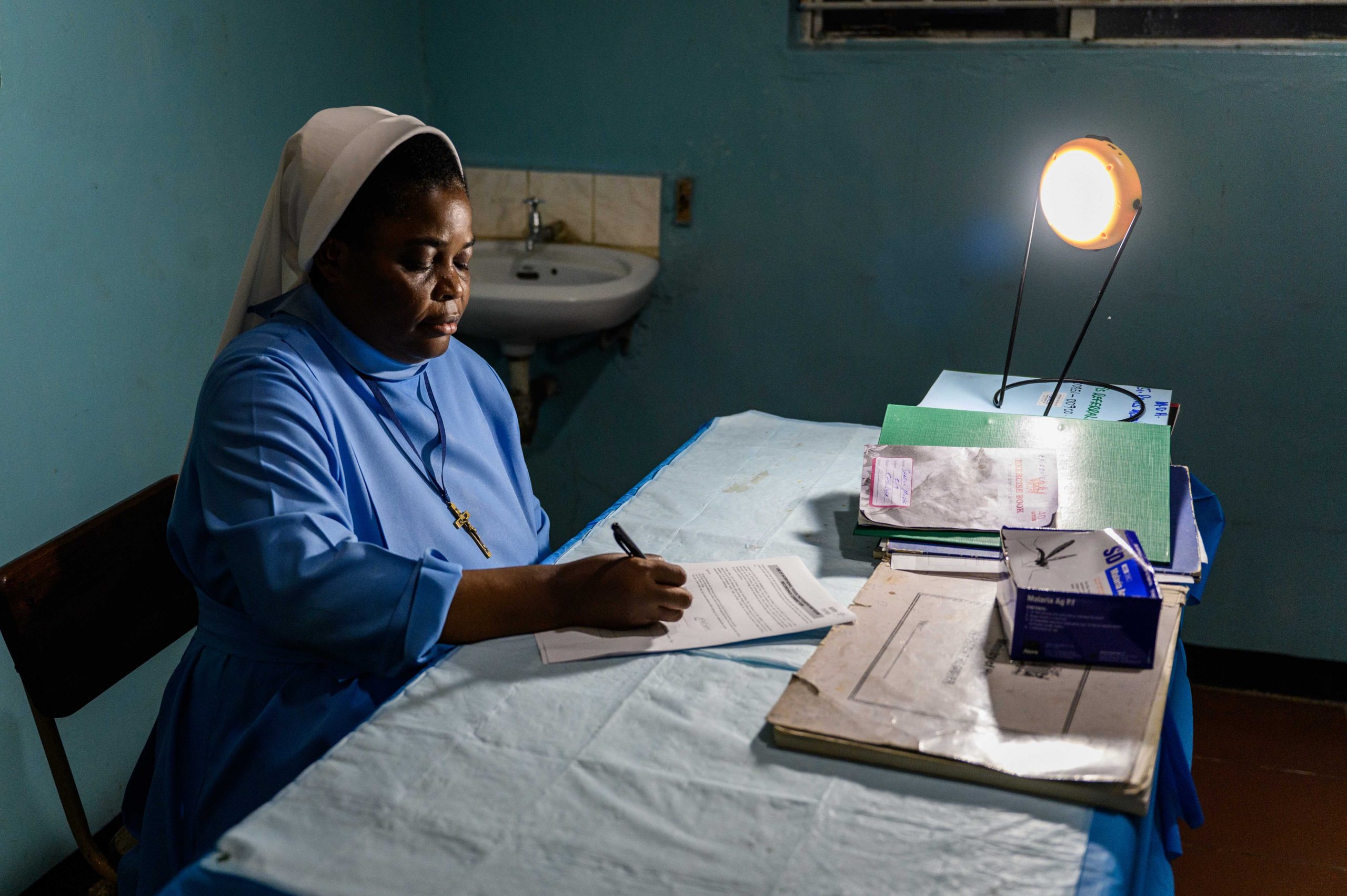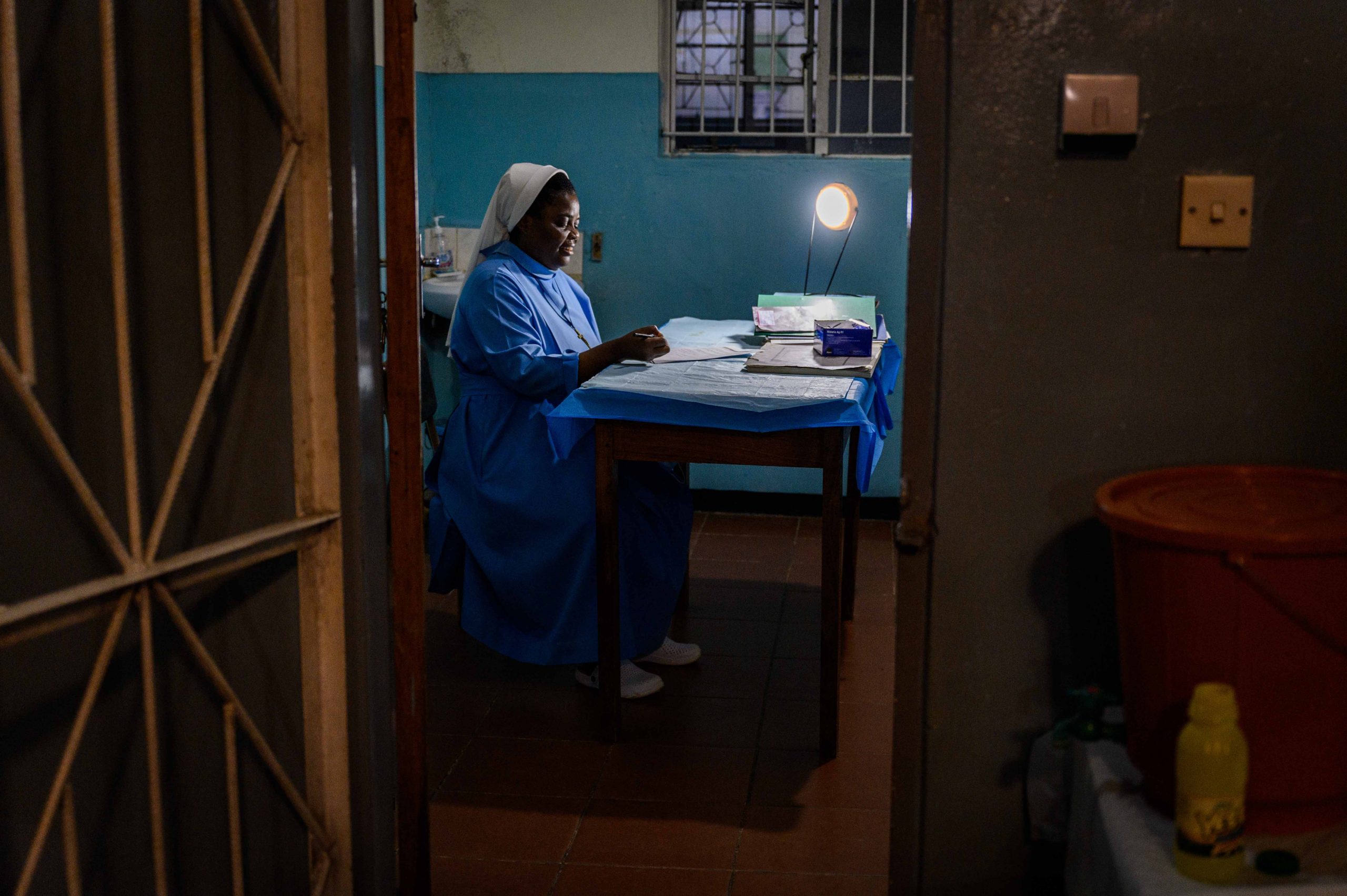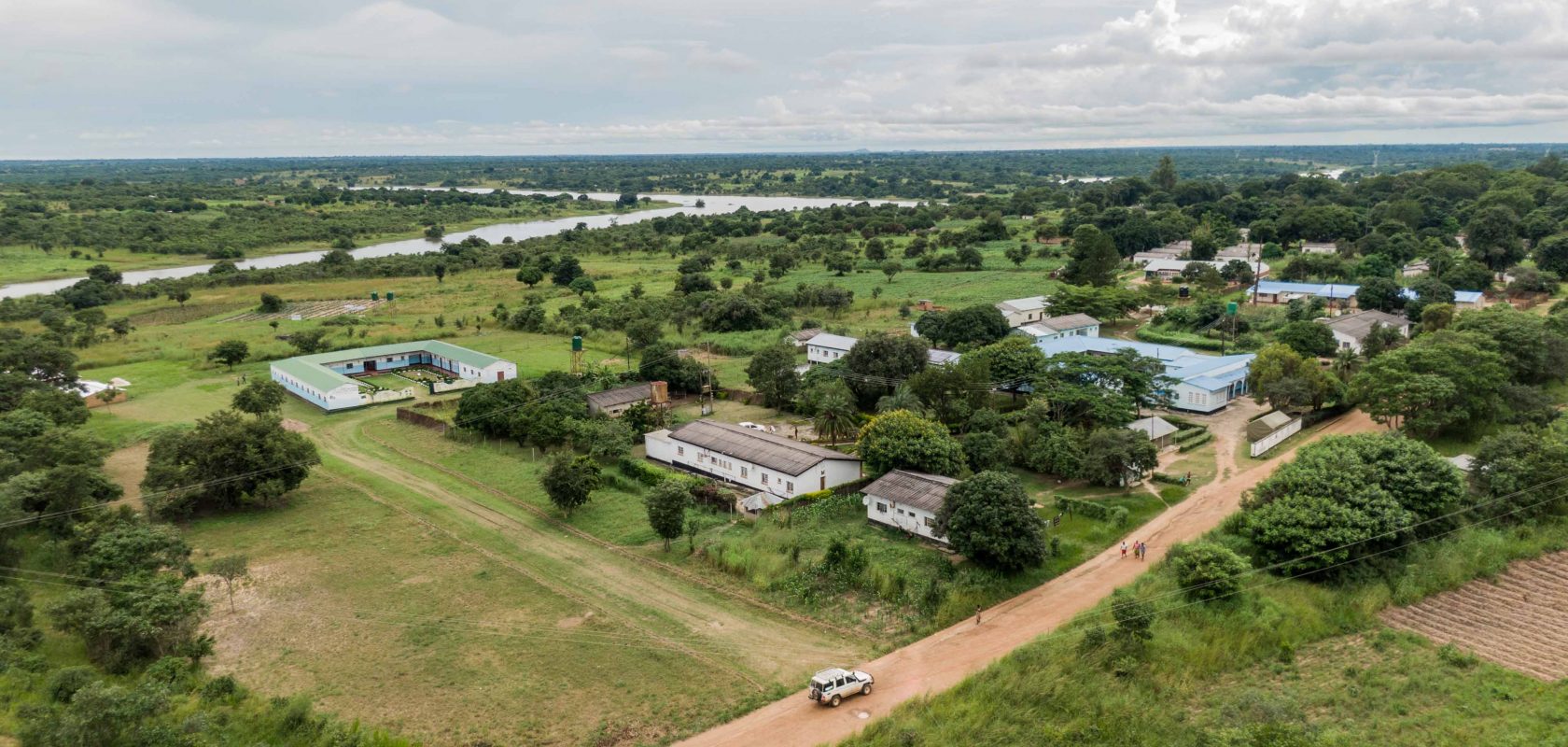Sister Grace Mukupa has worked at St. Paul’s Rural Mission Health Centre in Zambia since 2013. The small rural clinic with 22 staff members have suffered from consecutive power cuts for a long time, which has forced healthcare staff to carry out procedures in the dark or wait until the morning to attend to patients. In December, SolarAid installed solar products at the clinic.

“We are having a lot of challenges, when the power goes, then you don’t have anything. Maybe you have a woman in labour, then you have to find the ways and means of helping that woman. It has really come at the right time when we really need it,” says Sister Grace who explains that it’s the children’s ward and the maternity ward that have benefitted most from the solar products, “If they go to the other rooms they don’t have solar, so we push that patient into the children’s ward and then it will be easier for us to monitor that patient.”
The solar products do not only provide much needed light for the clinic, they can power medical equipment as well, such as pulse oximeters and foetal dopplers. Sister Grace laughs and says, “The doc is using the pulse oximeter much!”.
“The foetal doppler, we are using it in the maternity ward. It’s good! They are not much in contact with the mother. It is helping preventing the coronavirus, and other infections. And the patients are happy, they are able to hear the sound of the heartbeat of the baby.”
For an under resourced health facility such as St. Paul’s, solar power also means the clinic is saving money on electricity. “It is reliable, and it is cheaper. It is better to use the solar, because it means that over a period of time you don’t have to pay anything. So the expense of electricity will come down.”

Sister Grace Mukupa attending to a patient.
St. Paul’s Rural Health Mission is open 24 hours and there is always someone on duty. The problem with power cuts in the night time however, has made it difficult to work and some work has had to wait until morning.
“We have a backup now, you can do anything at any time. When there is no electricity, you are able to come and work. Like those in the lab, you can now call them and they will be able to work. Even us, I’m a night nurse and when there is no light at least we are able to work,” Sister Graces co-worker Marriane Mwale, Lab Technician agrees, “Now, with the solar light, in the case that there is no power and the clinicians need a test to be run in the lab, I’m able to do that definitely no matter the time. I’ll have light there, and they’ll get their result, and the patient will be helped as quickly as possible.”
No clinic should be left in the dark, sign up to SolarAid’s newsletter to read more stories like Sister Grace Mukupa’s.

